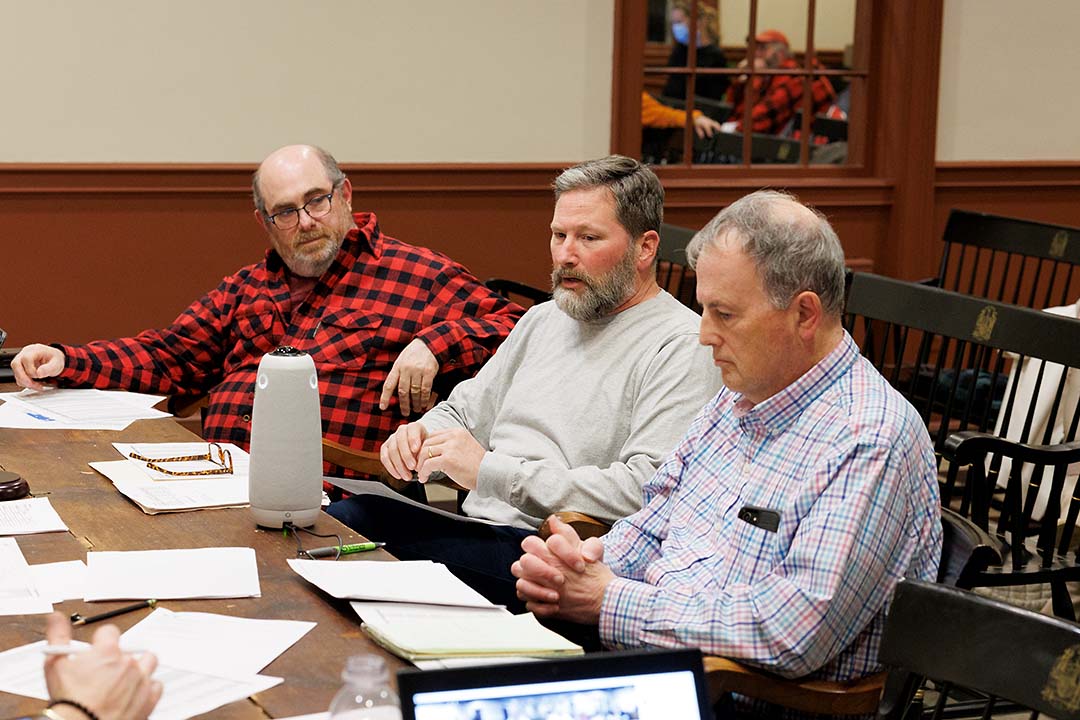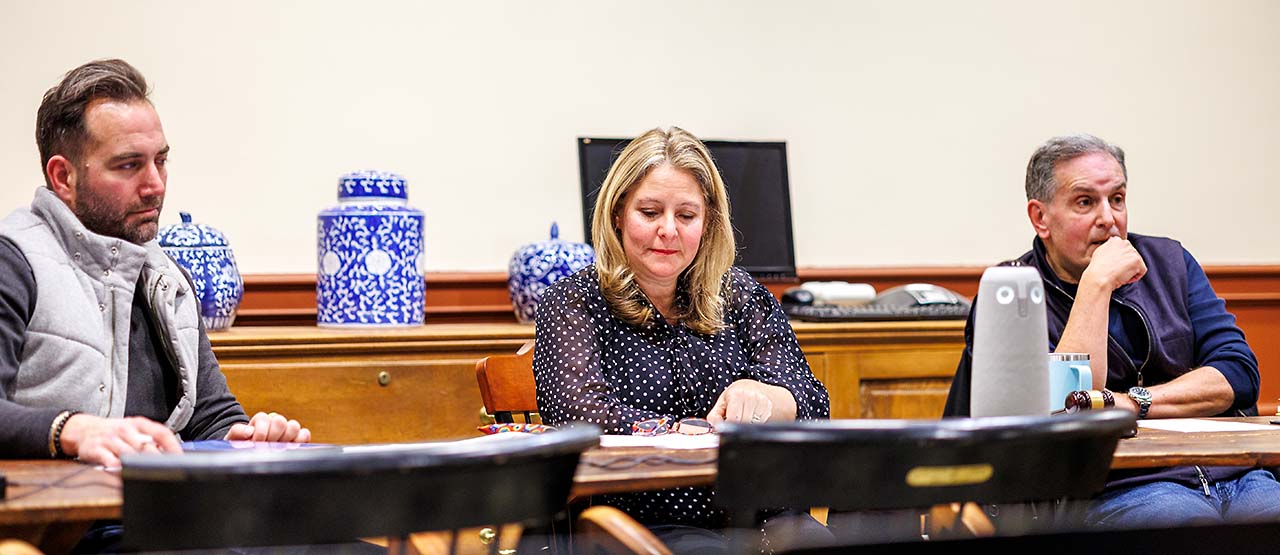On the Table: A Major Push to Fix the Roads

Artem/Adobe Stock
Out of 81 miles of paved public roads in Weston, more than 14 miles are in need of major rehabilitation, according to the latest annual assessment of conditions. Another 17 miles, if unaddressed, may be headed into that category.
So the Board of Selectmen on January 18 began discussing whether to launch an aggressive multi-million dollar initiative to bring Weston roads up to par and keep them there.
And to get started right away.
“There is an urgency to this,” said First Selectwoman Samantha Nestor. “The option of doing nothing isn’t there.”
Public Works Director Larry Roberts said it will cost around $8½ million to rehabilitate the roads needing major work and another roughly $2 million to catch up on the minors and perform preventive maintenance. The essential difference between major and minor rehabilitation is whether a road needs milling.
Mr. Roberts added that the Town needs to budget $1.5 million (in today’s dollars) each year going forward to establish a repaving and maintenance regime that breaks the longstanding cycle of road deterioration. “That would allow us to keep our head above water,” he said.
In the approach discussed, half of the major rehabilitation work would be done this year and the other half in 2025.
This would require an outlay of nearly $4.4 million in each of those two years. So, an obvious question is how to come up with that kind of money.

Left to right: Michael Imber, Larry Roberts, Rick Darling
The financials
Rick Darling, the Town’s finance director, described funding options. The discussion, joined at times by Board of Finance chair Michael Imber, seemed to gravitate — at least for this opening conversation — to a combination of sources: some amount allocated in annual capital budgets, some possibly drawn from Town reserves, and some (or maybe all) financed by a bond anticipation note.
Bond anticipation notes are short-term securities. Mr. Darling said their term is typically one year or less, but the notes can usually be rolled over once or twice. The “anticipation” is that the notes are issued in advance of larger long-term bonding and paid off when a larger bond is issued.
Municipal governments often use these notes to get a head start on a piece of a large project. Mr. Darling said such notes are quicker and less expensive to get than long-term bonds and that interest payments have much less impact on annual debt service.
That context seems to fit Weston, given the general expectation that long-term bonds will at some point be issued to renovate school and Town facilities. It is not at all clear when that may happen. For the most part, the ball is in the Board of Education’s court, where the vision of a future Weston campus is only beginning to develop.
How did we get here?
Five years ago, it was clear that maintenance of Weston roads had long been woefully inadequate. Only two weeks before the 2019 paving plan was revealed to be a serious expectations miss, the Town had engaged consulting engineers BETA to advise and implement a data-driven assessment system.
Those ongoing assessments have guided road maintenance priorities ever since, and to an extent, budgeting. The annual paving outlay has more than doubled from the amount allocated in the years before BETA was brought in. But the increases apparently were not enough.
Mr. Roberts told the Selectmen that the Town still underfunds road maintenance. In the past four years, he said, a total of $4.8 million has been budgeted, but that amount is well short of a $13.5 million backlog reported in 2020, $8.4 million of which was needed for roads “kind of falling apart.”
“We are in no better shape than we were back then,” said Ms. Nestor.
Several major roads have been attended to in recent years, but many with less traffic, especially cul de sacs, have been set aside. That cannot continue, said Mr. Roberts.
He said snowplows cannot do a good job on deteriorated roads, and often tear them up. Some dead-ends, he noted, will be on the list of roads destined for major restoration.
“Homeowners on cul de sacs pay just as much in taxes as everyone else,” said Ms. Nestor. “They need their roads repaired too.”
What happens next

The Selectmen
If the Selectmen agree to proceed with a proposal for the plan or some version of it, Ms. Nestor said it is possible the decision process would run in parallel with this year’s budget cycle and conclude even sooner, given the sense of urgency.
This, she said, is because annual budgets are not approved until the month of May, likely too late to get anything done or even started this year.
Approval by the Selectmen would send the matter to the Board of Finance, who would then decide whether to submit it to voters. This would be a required step if the proposal includes a large draw from reserves or any amount of bond anticipation financing. Expect hearings along the way.
“Roadapalooza”
With the proposed timeline of such an ambitious project, Weston could see a significant amount of road work soon. Ms. Nestor characterized the discussion as “the kickoff of Roadapalooza.”
Rehabilitation is already in store this year for Lyons Plain Road. A $2.6 million state grant funds reconstruction of the road’s full three-mile length from the Westport town line to Davis Hill Road. The work involves milling and paving, full reconstruction in some areas, minor widening in others, and drainage improvements.
State grants totaling $5.3 million also fund reconstruction of Valley Forge Road in two phases over the next couple of years. The first phase rebuilds the road’s three-quarter-mile segment between Kellogg Hill Road and Old Stage Coach Road, including minor widening and broader shoulders, installation of retaining walls on some sections, replacement of guide rails, and drainage improvements.
The second phase will involve similar work on the half-mile segment between Old Stage Coach Road and Bradley Road.
